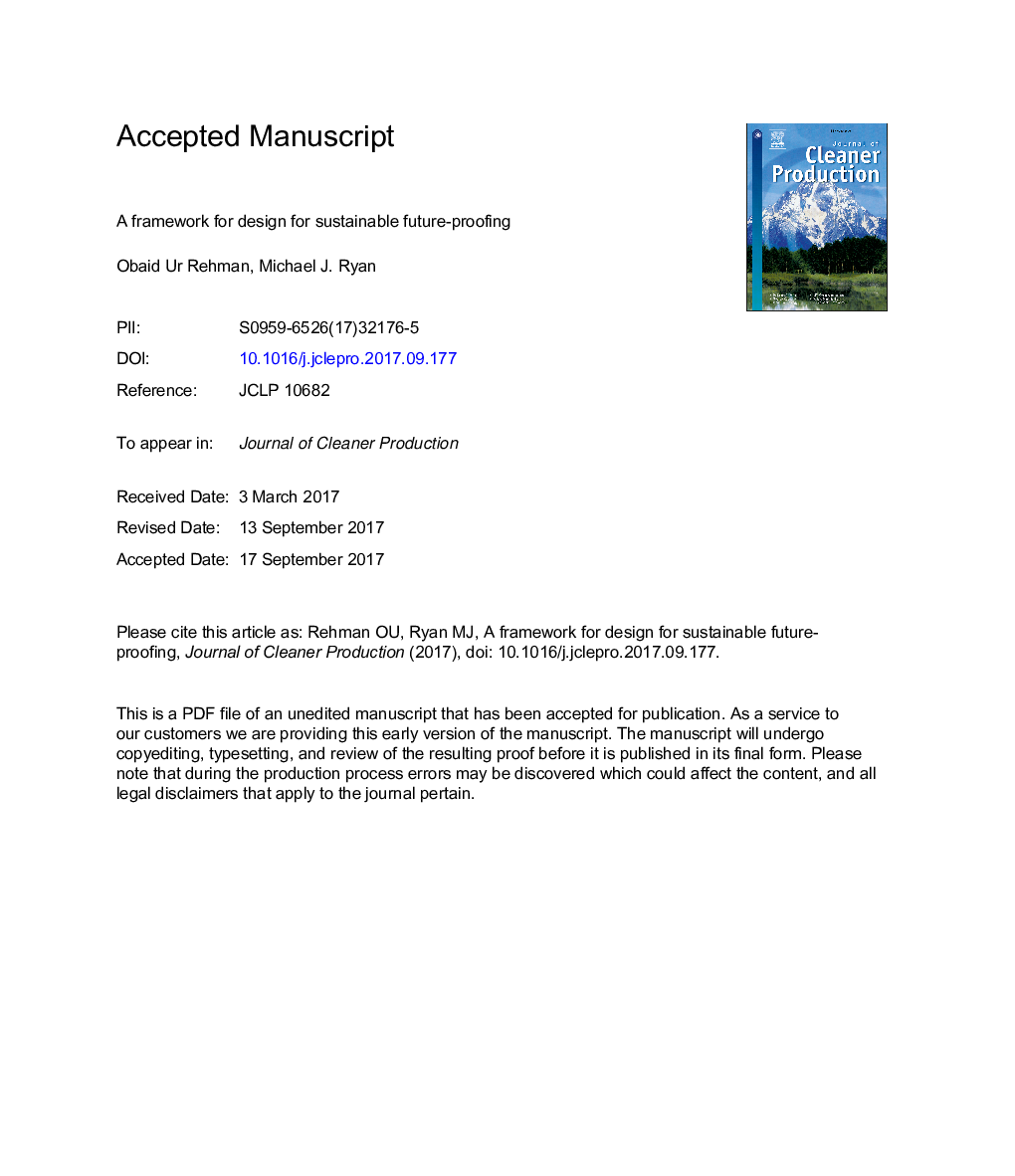| کد مقاله | کد نشریه | سال انتشار | مقاله انگلیسی | نسخه تمام متن |
|---|---|---|---|---|
| 5479256 | 1522084 | 2018 | 26 صفحه PDF | دانلود رایگان |
عنوان انگلیسی مقاله ISI
A framework for design for sustainable future-proofing
ترجمه فارسی عنوان
چارچوب طراحی برای اثبات پایدار در آینده
دانلود مقاله + سفارش ترجمه
دانلود مقاله ISI انگلیسی
رایگان برای ایرانیان
کلمات کلیدی
اثبات آینده، ارزش سیستم، سیستم پایدار، چرخه عمر سیستم،
موضوعات مرتبط
مهندسی و علوم پایه
مهندسی انرژی
انرژی های تجدید پذیر، توسعه پایدار و محیط زیست
چکیده انگلیسی
This paper presents an analytical design framework for sustainable future-proofing (DfSFP). The framework provides a systematic approach to deal sustainability and to address future requirements across the entire lifecycle of the system. Future-proof design is one way to obtain a design which defers obsolescence and extends the system's service life and generally includes additional elements in the current solution in order to accommodate future capabilities as projections of the future solutions required to meet those future requirements. However, not all long-life systems are sustainable. In the DfSFP process, future capability elements are integrated in the system capability model in such a way that the system is future-proofed and remains sustainable throughout the system lifecycle. We begin by examining the principles of future proofing and the principles of sustainable design and integrating them to obtain a set of sustainable future-proofing (SFP) design principles. The SFP principles address the entire system lifecycle and account for the impact on the system of additional future proofing elements. The impact is categorised in accordance with the system lifecycle and assessed using a rating system which has been developed to integrate future-proofing elements in the system ensuring overall system sustainability. In order to select the most-suitable design based on the principles developed in this work, a modified analytic hierarchy process is proposed. Finally, an illustrative example is presented where the proposed DfSFP methodology is used to design a house with sustainability and future-proofing requirements. It is shown that the framework provides a systematic analytical basis to assist the designer in addressing the future requirements.
ناشر
Database: Elsevier - ScienceDirect (ساینس دایرکت)
Journal: Journal of Cleaner Production - Volume 170, 1 January 2018, Pages 715-726
Journal: Journal of Cleaner Production - Volume 170, 1 January 2018, Pages 715-726
نویسندگان
Obaid Ur Rehman, Michael J. Ryan,
